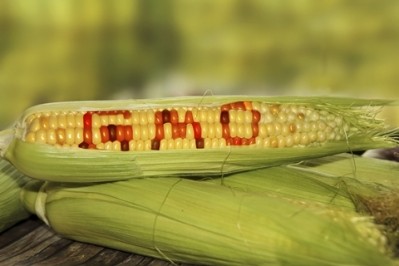GMA et al file appeal vs Vermont GMO ruling, but they are running out of time, say attorneys

The GMA and other trade associations filed a lawsuit last June claiming Act 120 was unconstitutional and preempted by federal law. It also sought a preliminary injunction to prevent Vermont from implementing Act 120 until the litigation was resolved.
However, in an order filed on April 27, judge Christina Reiss dismissed the motion for a preliminary injunction, arguing that the plaintiffs had failed to prove that failing to grant it would case 'irreparable harm'.
A legal brief outlining the grounds for the appeal will be filed with the appellate court in the weeks ahead, said GMA president Pamela G. Bailey.
“The court’s opinion in denying our request to block the Vermont law opens the door to states creating mandatory labeling requirements based on pseudo-science and web-fed hysteria. If this law is allowed to go into effect, it will disrupt food supply chains, confuse consumers and lead to higher food costs.”
However, legal experts we spoke to (click HERE) predict an appeal may not help manufacturers in the short term.
Richard Samp, Chief Counsel at the Washington Legal Foundation told FoodNavigator-USA: “An appeal would likely take upwards of two years. Although the appeals court has the power to grant an injunction against enforcement of a statute pending completion of the appeal, that power is rarely exercised. Thus, I expect that the Vermont law will be allowed to take effect in 2016 while the appeal continues.”
Most companies are taking a wait-and-see approach
In the meantime, food manufacturers and retailers are now stuck between a rock and a hard place, because whatever happens regarding the lawsuit, Act 120 will likely come into effect first (July 1, 2016), meaning they will have to make a decision now as to how to label their products in order to comply.
So what will they do? Develop Vermont-specific labels? Stop supplying companies in Vermont? Work doubly hard to go non-GMO where they can? Put GMO labels on all products nationally and be done with it? Or sit back and hope that a federal solution is developed first? (Mike Pompeo’s Safe & Accurate Food Labeling Act, for example)?
Karen Duester, president of the Food Consulting Company, told FoodNavigator-USA: “For us, it's too early to tell if there will be a common reaction or plan of attack. I think most companies are taking a wait-and-see approach, but maybe things will heat up early next year if there's no legal resolution before then.”
Of the options mentioned above, many firms are definitely hoping a federal solution will be fast-tracked in light of the Vermont situation, while many others are now redoubling efforts to go non-GMO, she said.
What does the Act 120 mandate?
Under Act 120 - which comes into force on July 1, 2016 - firms must declare in a “clear and conspicuous” manner that foods are: ‘Produced with genetic engineering’ or ‘partially produced with genetic engineering’ or ‘may be produced with genetic engineering’ unless they can prove otherwise.
But they could also declare, for example, that the FDA does not consider food produced with genetic engineering to be materially different from other foods.
EXEMPTIONS: Meat or milk from animals fed GE feed, alcohol, processing aids/enzymes, medical foods, foods sold in restaurants, or packaged foods where the aggregate weight of the GE material is no more than 0.9% of the total weight of the food.
NATURAL CLAIMS: Foods containing genetically engineered ingredients cannot be marketed as ‘natural’.
PENALTIES: Violators will be liable for a civil penalty of up to $1,000 per day, per product.
Are you interested in finding out what going non-GMO will involve for your business? Register for our FREE 60-minute online forum below:











